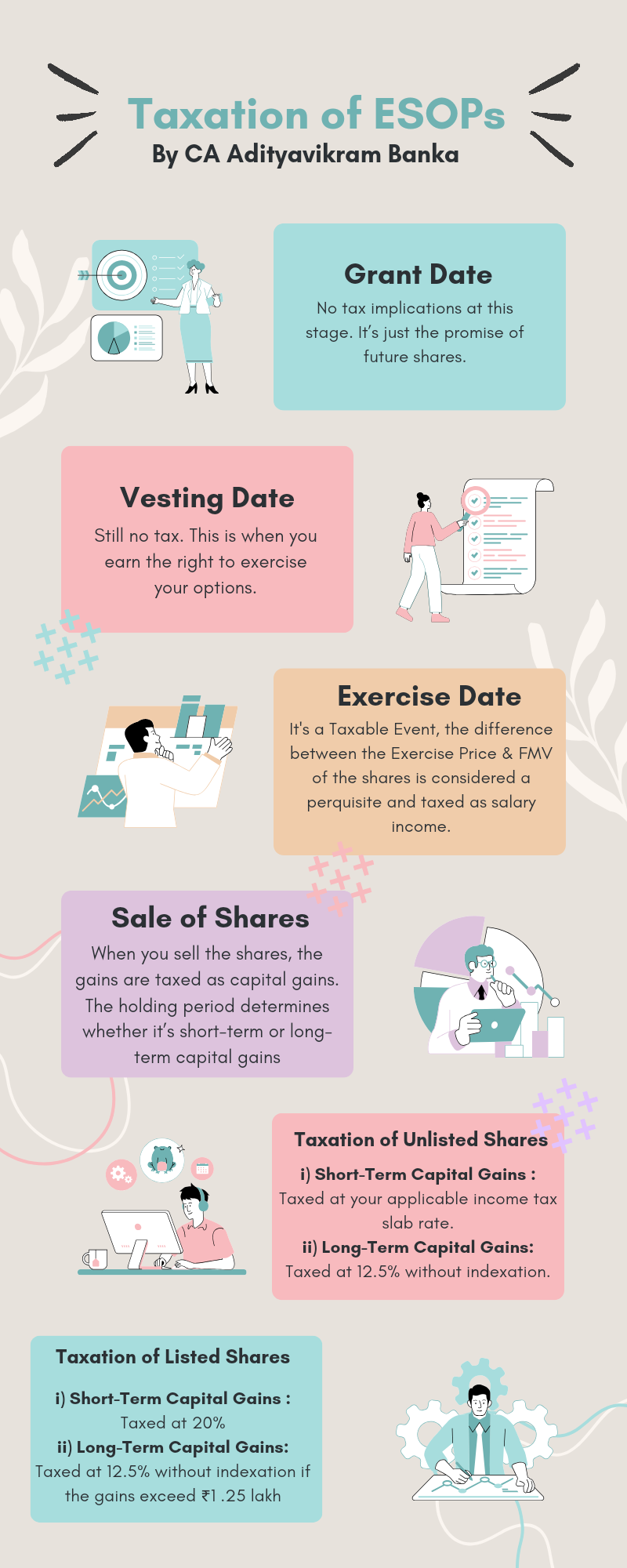Taxation of ESOPs
Taxation of ESOPs
Employee Stock Option Plans (ESOPs) are a fantastic way for companies to reward and retain talent. However, understanding the taxation of ESOPs can be a bit tricky.
Here’s a quick guide to help you navigate the basics:
i) Grant Date: No tax implications at this stage. It’s just the promise of future shares.
ii) Vesting Date: Still no tax. This is when you earn the right to exercise your options.
iii) Exercise Date: This is where taxation kicks in. The difference between the exercise price and the fair market value (FMV) of the shares is considered a perquisite and taxed as salary income.
iv) Sale of Shares: When you sell the shares, the gains are taxed as capital gains. The holding period determines whether it’s short-term or long-term capital gains.
A) Tax Rates for Unlisted Shares:
i) Short-term Capital Gains: Taxed at your applicable income tax slab rate.
ii) Long-term Capital Gains: Taxed at 12.5% without indexation.
B) Tax Rates for Listed Shares:
i) Short-term Capital Gains: Taxed at 20%
ii) Long-term Capital Gains: Taxed at 12.5% without indexation if the gains exceed ₹1 .25 lakh
💡 Pro Tip: Plan your exercise and sale strategy to optimize tax liability.
ESOPs can be a powerful wealth-building tool if managed wisely. Stay informed and make the most of your stock options! 🚀
#ESOPs #Taxation #EmployeeBenefits #WealthManagement #CareerGrowth #Startups #EmployeeRetention
- MCA issues Merger and Amalgamation Amendment Rules effective from 17th September. - September 11, 2024
- Taxation of ESOPs - August 14, 2024
- Block Assessment in case of Search Proceedings Re-introduced in the Budget 2024 - August 7, 2024









